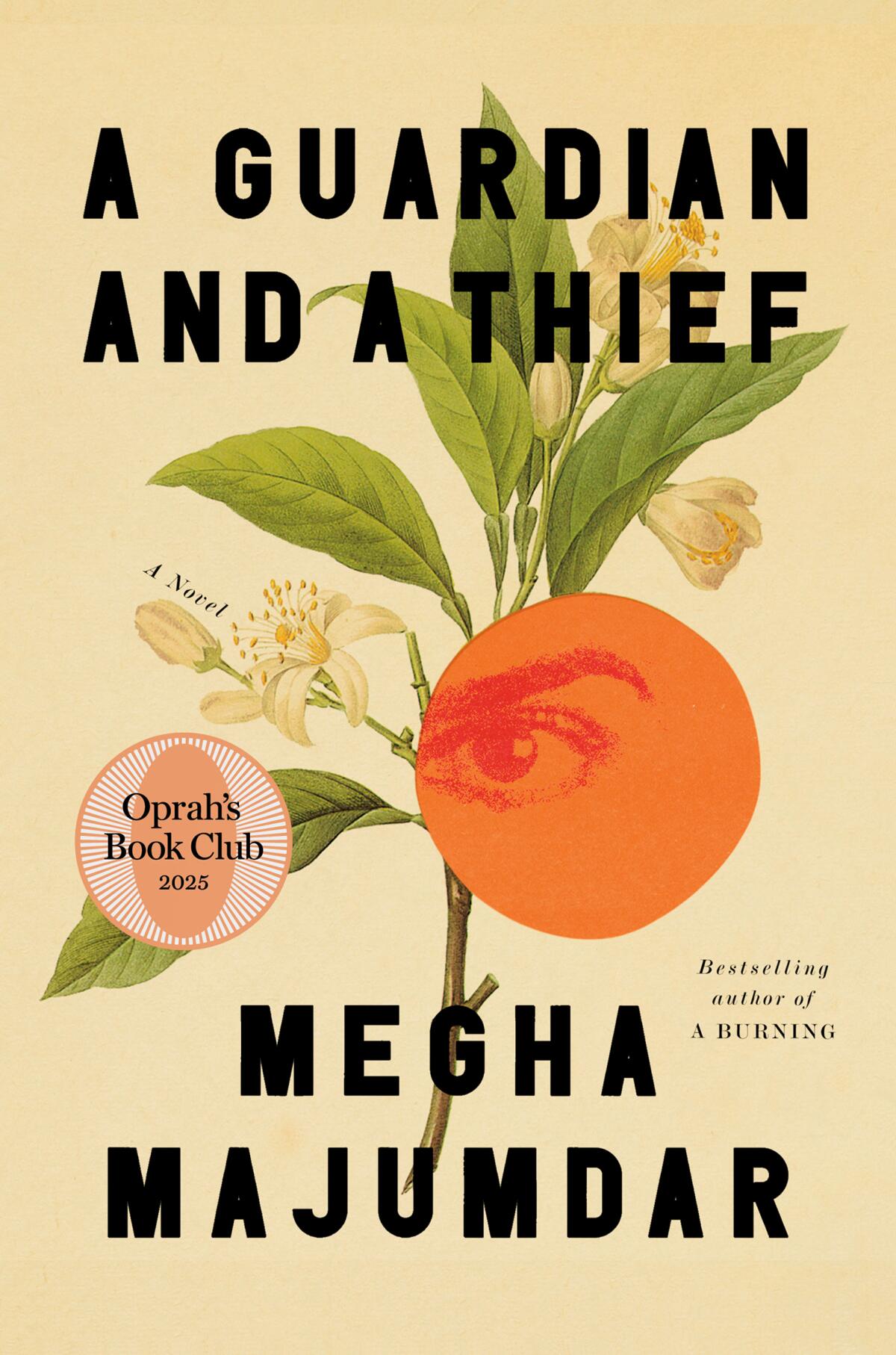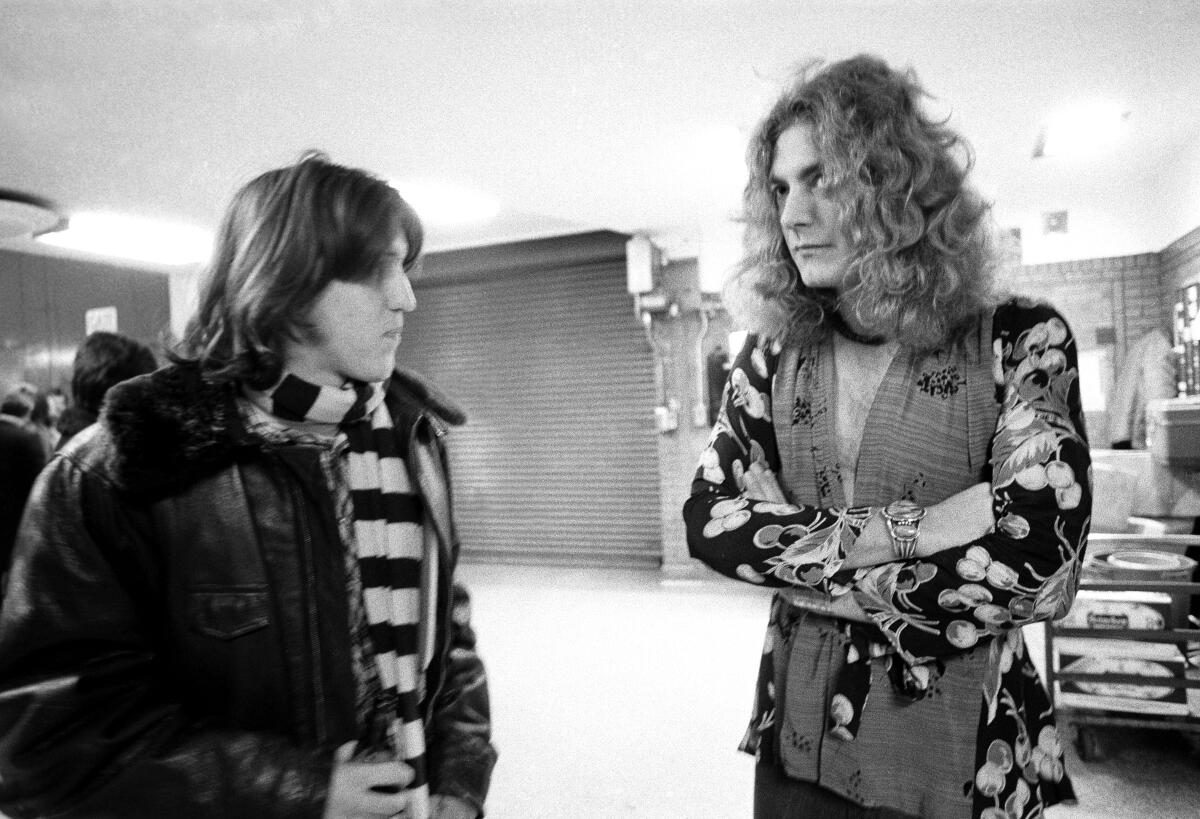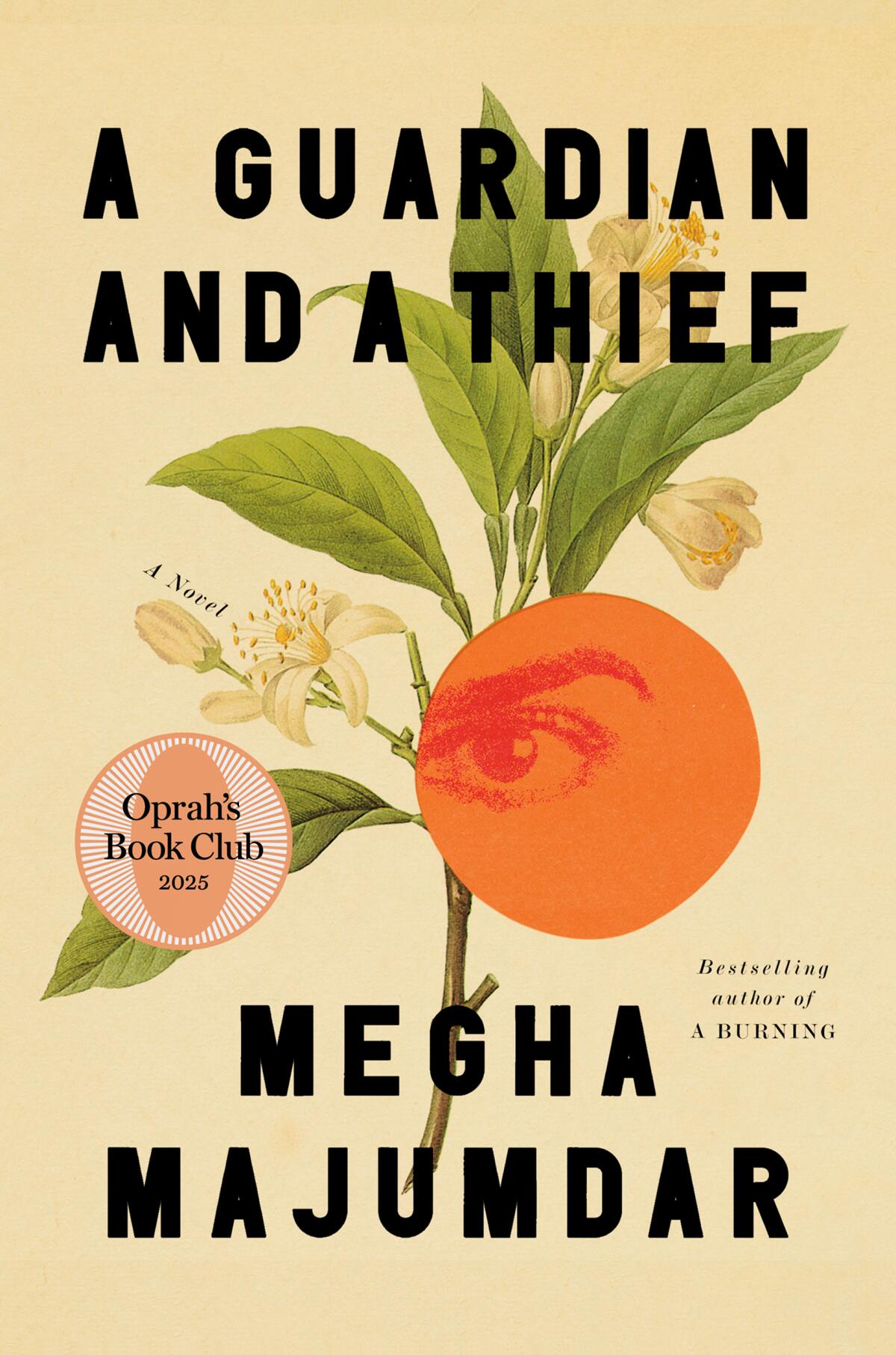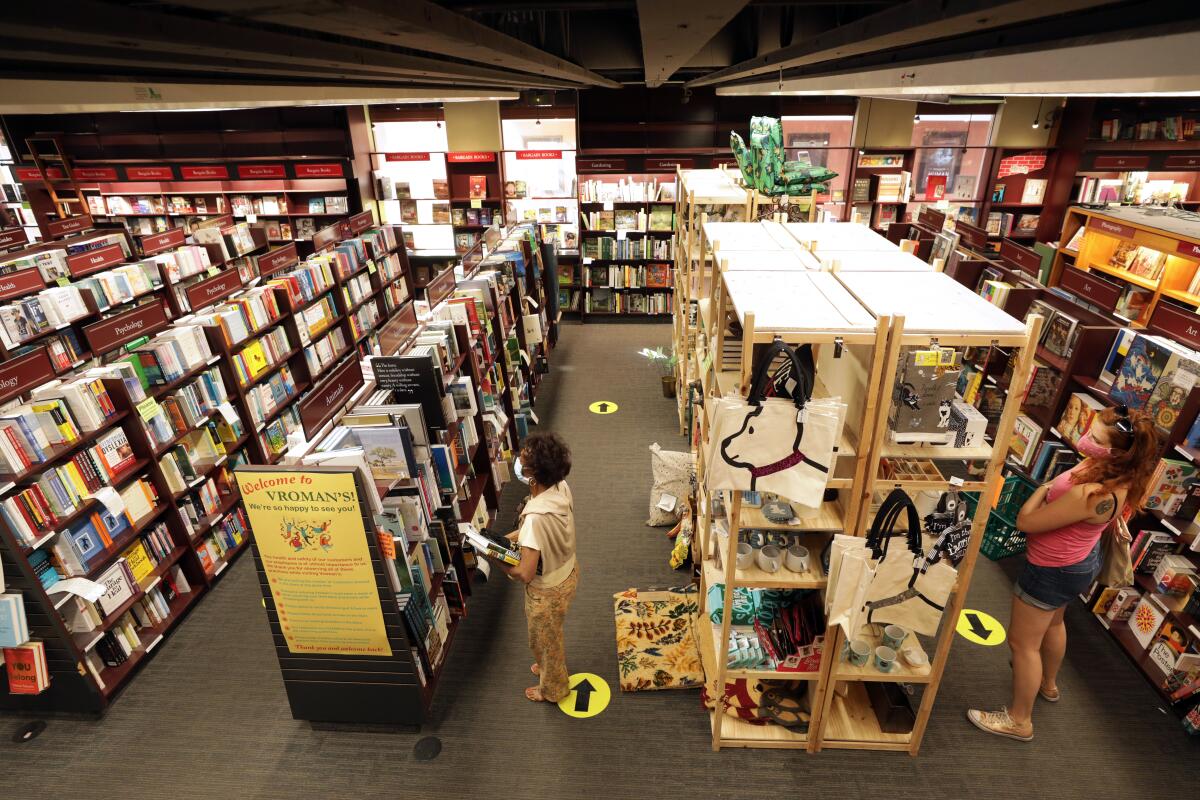In Megha Majumdar’s new novel “A Guardian and a Thief,” a cataclysmic climate event in the Bengali city of Kolkata has wiped out shelter and food supplies, leaving its citizens desperate and scrambling for survival. Among the families beset by the tragedy are Ma, her young daughter Mishti and Ma’s father Dadu. They are some of the fortunate ones, with approved passports to travel to the U.S., where Ma’s husband awaits them in Ann Arbor, Mich. But a brazen theft threatens their very existence.
“A Guardian and a Thief” is Majumdar’s follow-up to her critically acclaimed bestselling debut “A Burning.” We chatted with the author about white lies, the pleasures of anthropology and teaching as a form of learning.
(Please note: The Times may earn a commission through links to Bookshop.org, whose fees support independent bookstores.)
✍️ Author Chat

“A Guardian and a Thief” by Megha Majumdar
(Knopf)
Your novel takes place in Kolkata, which is your hometown. Why?
It’s one of the cities in the world which is most severely affected by climate change. I was reading about all of these grim predictions. Kolkata has grown significantly hotter and is predicted to endure more storms in the coming decades. Reading all of that was really sad, and it was really alarming. The book really grew out of these predictions about the future of the city.
Your character Boomba makes life very difficult for your family, yet he is really a victim of circumstance, right? Calamities can make good people do bad things.
This is the kind of question that got me into this book, which is, are there good people and monsters or do we contain elements of both in us? And is this revealed in a circumstance of scarcity and crisis? That’s the kind of question that I was very interested in. Boomba came to me initially as the thief of the title, but as I started writing more about him, I realized that it wouldn’t be truthful or interesting to simply make him the thief. He was more complex and I needed to write him with all of his complicated motivations and wishes and worries and regrets.
Everyone in the novel lies to some extent, whether it’s for self-preservation, or to protect their loved ones from being hurt.
I think it’s coming from love, actually, the loving function of lies and falsehoods. Anybody who has lived far away from home might find that this resonates with them: This feeling that when you are really far away from your loved ones, you need to assure them that you are OK, that things are all right. It’s a kind of love that you can offer them, because they cannot do anything to help you from so far away. So offering them falsehoods about how your circumstances are fine and they have nothing to worry about is an expression of love for them.
You studied anthropology in college. How did you move into fiction?
Anthropology is about the effort to understand [other people] while acknowledging that you can never fully know, that there are limits to how much any of us can understand another person’s life. That training, in listening for complexity in somebody else’s life story, and honoring the contradictions and intricacies of their life, and maintaining the humility to acknowledge that there are things about other people which will always remain mysterious to us — that space is so rich for a fiction writer.
You teach writing in the MFA program at Hunter College in New York. How does that feed into your work?
It’s what I loved about working as a book editor. Teaching feels beautifully related to editorial work, because, once again, I am close to other writers. I’m close to their text, I am thinking with them through the questions of what this text is accomplishing. And I love having the opportunity to think through failures of prose with other incredibly smart and creative and ambitious writers. When I say failure, there’s nothing bad or stressful about it. I fail in my writing all the time. Failure is part of the process. Being able to look at those failures and ask, what is happening here is very useful.
📰 The Week(s) in Books

Twenty-five years after “Almost Famous” put his origin story on movie screens, Cameron Crowe (left, with Robert Plant) reflects on his roots as a teenage music journalist.
(Jay L. Clendenin / Los Angeles Times)
Valorie Castellanos Clark writes that “The Radical Fund,” John Fabian Witt’s book about a Jazz Age millionaire who gave his money away is a “meticulous” story of “the ways a modest fund endowed by a reluctant heir managed to reshape American civil rights in less than 20 years.”
Nine years after “Go Set a Watchman” published, Robert Allen Papinchak reviews Harper Lee’s latest, “The Land of Sweet Forever,” a collection of stories and essays from the late author, calling it “a rewarding addition and resource to the slim canon of her literary legacy.”
Leigh Haber is entranced with Gish Jen’s new novel “Bad Bad Girl,” about a fraught mother-daughter relationship, calling the book “suffused with love and a desire to finally understand.”
Finally, Mikael Wood chatted with filmmaker Cameron Crowe about his new memoir, “The Uncool.” Says Crowe of his journalism days, “I did an interview with Bob Dylan for Los Angeles magazine, and I got it so wrong that they didn’t publish it.”
📖 Bookstore Faves
Nine months after the Eaton fire, Vroman’s Bookstore continues to be a cherished haven for local residents. The store still vibrates with bookish energy as it continues its ambitious fundraising outreach campaigns for fire victims. We chatted with the store’s chief executive, Julia Cowlishaw, about how things are going at the beloved Pasadena institution.
Nine months after the fire, how is business?
Business has been steady this year and we’re pleased with that, given all the variables in the world.
What books are selling right now?
The new releases this fall are fabulous, and we are seeing a broad range of interests. In nonfiction there’s a lot of interest in trying to understand current events from historical perspectives and Jill Lepore’s “We the People” is one example on our bestseller list. Since it is fall, the list of cookbooks is amazing and Samin Nosrat’s new cookbook “Good Things” along with her older book “Salt, Fat, Acid, Heat” make great gifts. In fiction, Ian McEwan, Kiran Desai, Thomas Pynchon and Lily King’s new novels are popular, so literary fiction is alive and well.
How important has the store been for the community in such a challenging year?
Bookstores, including Vroman’s, have long been recognized as a third place in their communities. A third place gives people a space to come together with friends and family over a shared interest and a fine sense of community. That sense of community became even more important after the fires, and it was so important for us to be more than a bookstore and give back to our community in every way we could. Our community really responded by helping us raise money for several community foundations, and collect books and supplies for people impacted by the fires.
Vroman’s Bookstore is at 695 E. Colorado Blvd. in Pasadena.

